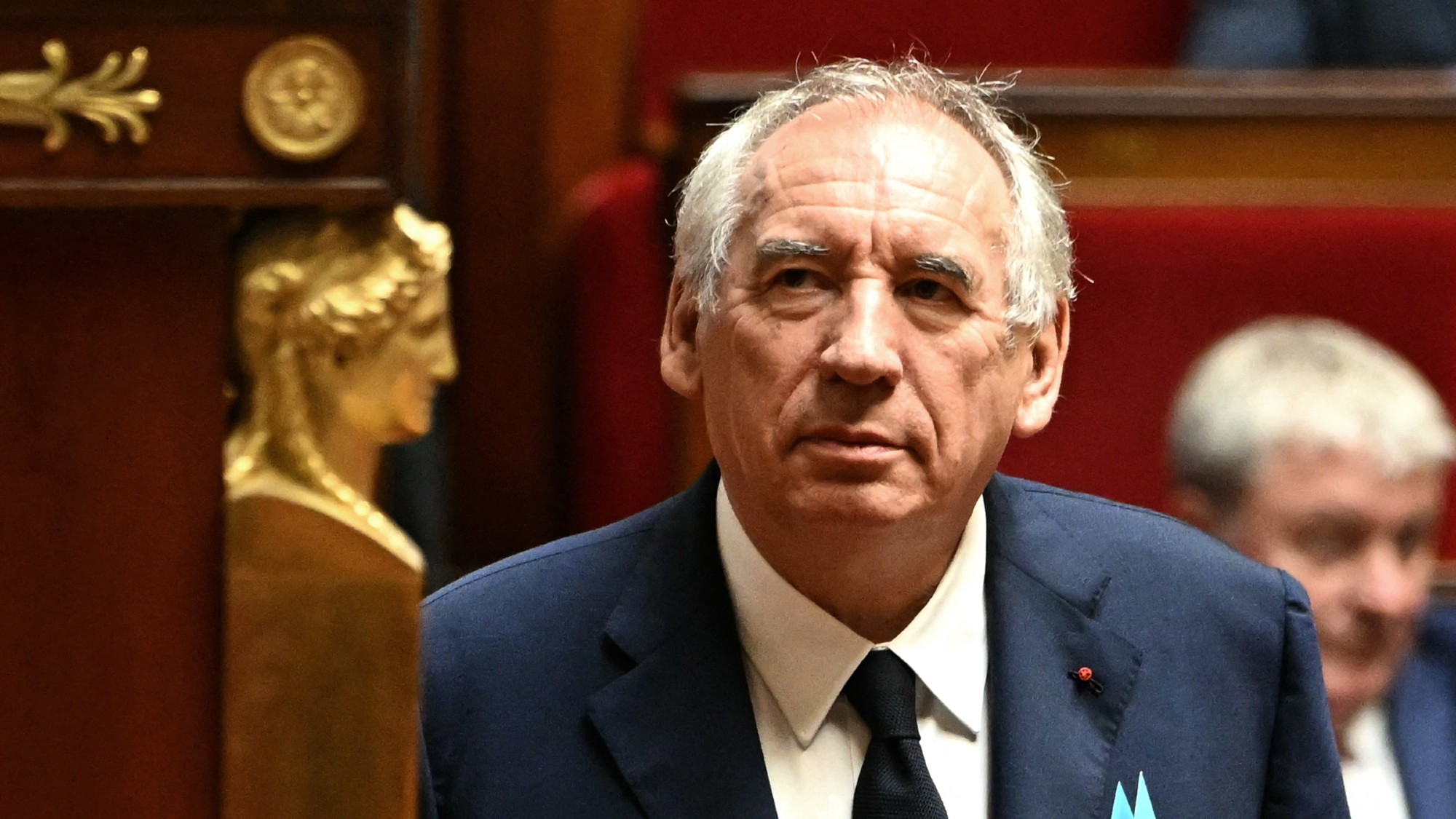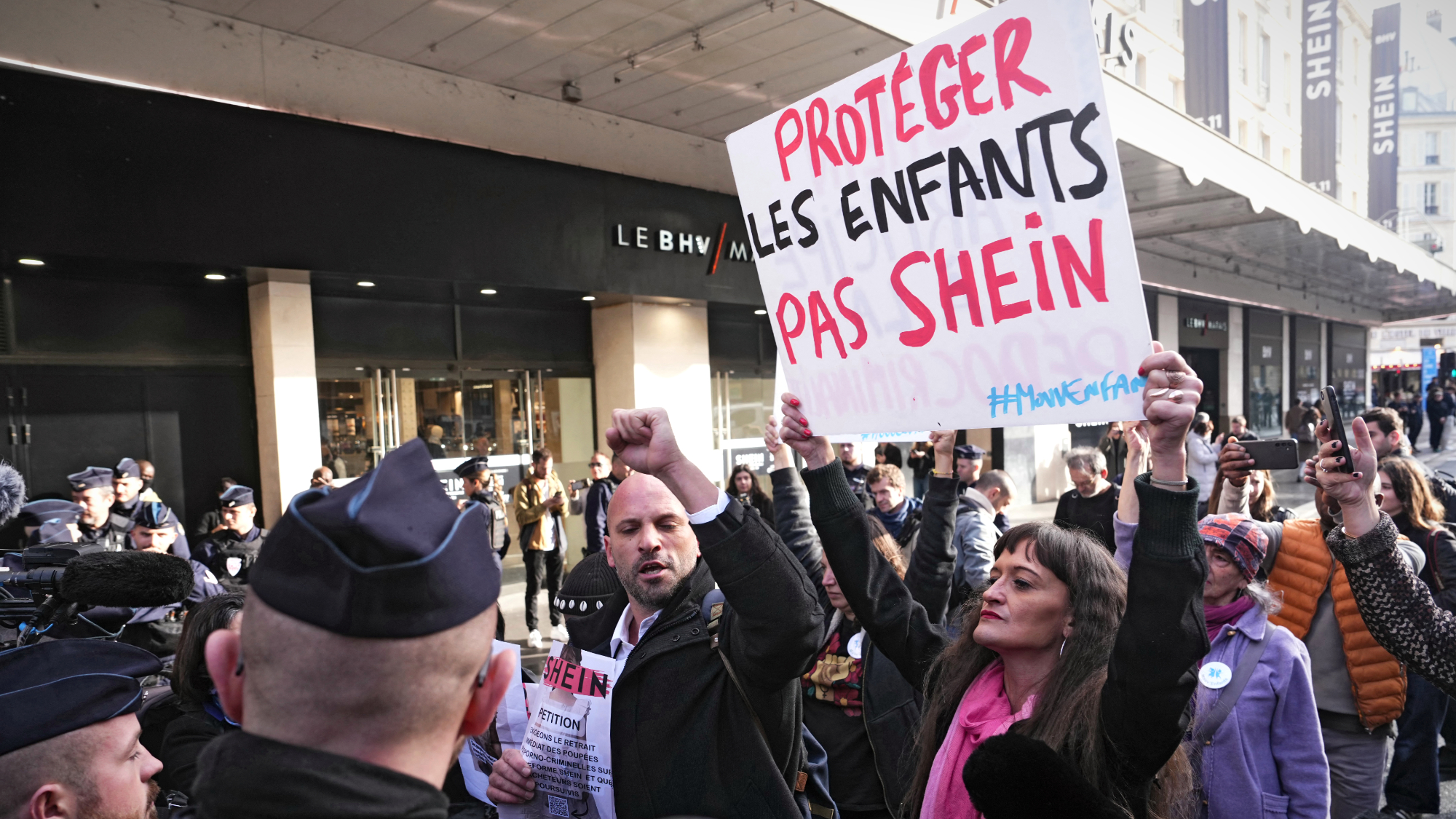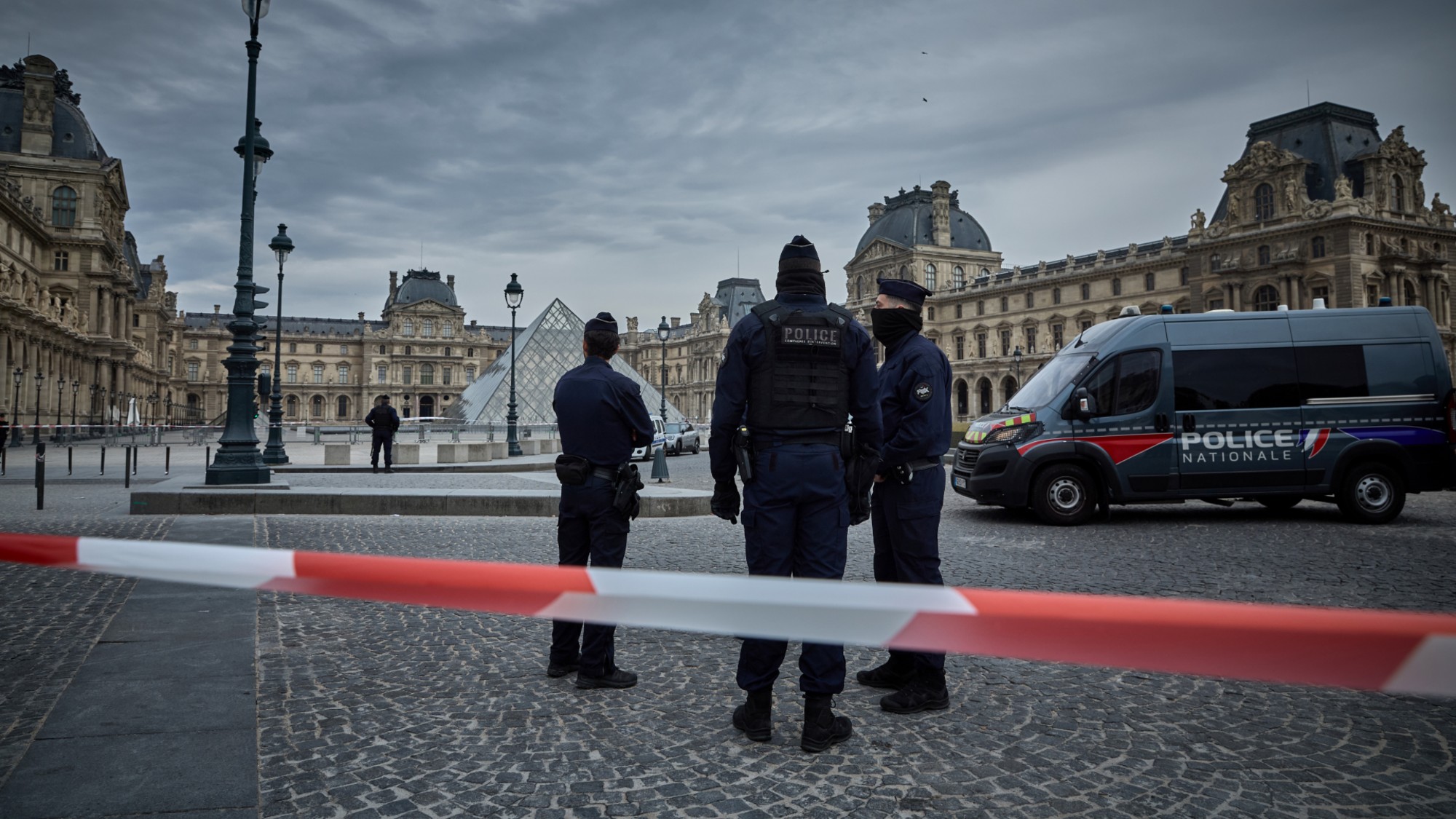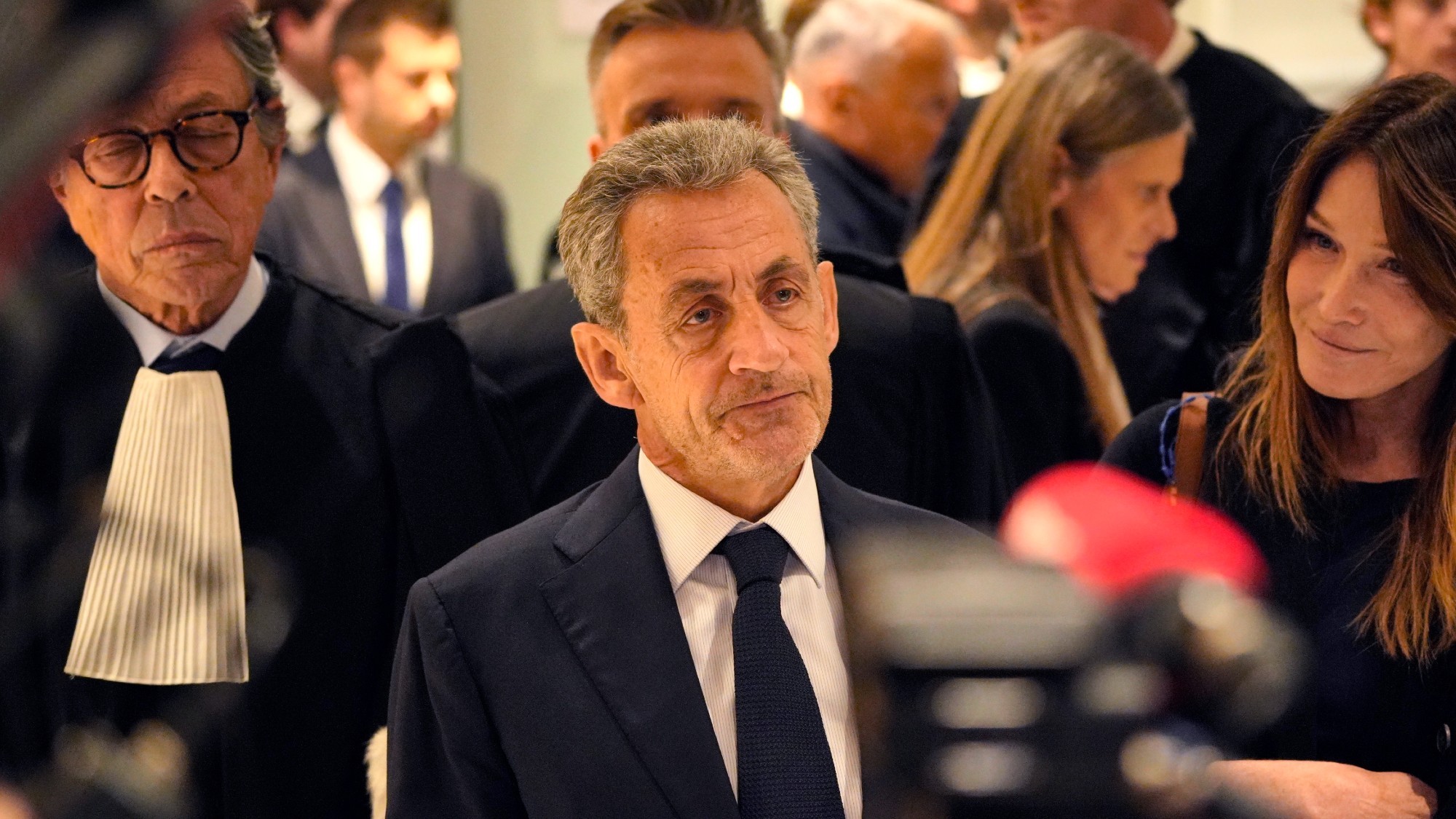Why can't France hold on to its prime ministers?
Spiralling debt, ageing population and cultural refusal to accept budget cuts – despite high welfare spending – have been turbocharged by Emmanuel Macron

A free daily email with the biggest news stories of the day – and the best features from TheWeek.com
You are now subscribed
Your newsletter sign-up was successful
France's wartime president Charles de Gaulle once asked: "How can anyone govern a country with 246 varieties of cheese?"
"More than 60 years on," said CNN, "the answer appears to be no one."
After losing a vote of no confidence, François Bayrou was forced to resign as prime minister after nine months. That leaves President Emmanuel Macron "weaker than ever", searching for his fifth prime minister in less than two years and facing growing calls for his own resignation.
The Week
Escape your echo chamber. Get the facts behind the news, plus analysis from multiple perspectives.

Sign up for The Week's Free Newsletters
From our morning news briefing to a weekly Good News Newsletter, get the best of The Week delivered directly to your inbox.
From our morning news briefing to a weekly Good News Newsletter, get the best of The Week delivered directly to your inbox.
What did the commentators say?
"With yet another government on the brink, France has, it seems, become ungovernable," said CNN.
Bayrou called the vote to try to push through his €44 billion savings plan – although budget reform "was precisely what claimed the scalp of his predecessor", Michel Barnier, after only three months as prime minister. Whoever replaces Bayrou must face the "much steeper mountain of getting the French to accept sweeping spending cuts".
But the instability "can be traced back" to Macron. He "blew up" the political order of the Fifth Republic, founded by De Gaulle in 1958 to end "chronic instability". In 2017, Macron became the first president elected without the backing of either mainstream party.
After he was re-elected in 2022, he lost his majority as voters "flocked to the extremes". Then came his "dramatic decision" to call a snap election in 2024, "piqued" by the success of the far-right National Rally. The left won most seats but fell short of a majority, and Macron "refused to accept their choice of prime minister". Unlike Germany or Italy, France "has no tradition of coalition-building".
A free daily email with the biggest news stories of the day – and the best features from TheWeek.com
But this long predates Macron, said Agence France-Presse. France's public debt has "steadily risen for decades", fuelled by "chronic budget deficits" and intensified by financial crises and the pandemic. This year it climbed to about 114% of annual GDP, the third highest in the eurozone after Italy and Greece, almost double the EU's limit of 60%. Next year, paying interest on that will be "the government's main spending item". Some have "raised the spectre of a scenario reminiscent of the Greek debt crisis".
France is "hardly on a par with Greece", said The New York Times. It is a "too-big-to-fail economy" and "not about to go bankrupt". That said, "things are bad", said Bruno Cavalier, chief economist at Oddo bank in Paris. There is a "collective denial of what is at stake". Government spending has long been the highest in Europe and "much of it goes towards financing a generous social welfare system".
Yet somehow "there's not enough money for anyone", said Alexander Hurst in The Guardian. Most people are "to some extent, dissatisfied". They also "see the downside to the concentration of policymaking in Paris and overwhelmingly want more decentralisation". France has also "an unnecessarily rigid labour market", which makes businesses reluctant to hire and unemployment "persistently higher than the EU average".
This crisis also "has its origins in the accumulated entitlements of an ageing French population", said The Telegraph. They want to "retire early and work fewer hours even as economic productivity collapses". Add to that their "adamantine resistance to any reforms that involve cutting spending". But until countries "learn to live within their means, there is no resolution to be had".
What next?
Macron will be "reluctant to hold fresh elections for fear of boosting National Rally still further", said The Telegraph. But if he appoints another centrist prime minister, it is "hard to see them avoiding Mr Bayrou's fate". Both the left and far right have vowed to block a candidate from the other side with an immediate vote of no confidence. The pressure may grow for Macron to call a presidential election before 2027.
But France is "frustrated, furious, full of hatred towards the elite", Dominique Moïsi, analyst at the Paris-based think tank Institut Montaigne, told CNN. "It sounds as if a regime change is inevitable, yet I can't see how it will come about and who would do the job. We are in a phase of transition between a system that no longer works and a system no one can imagine."
Harriet Marsden is a senior staff writer and podcast panellist for The Week, covering world news and writing the weekly Global Digest newsletter. Before joining the site in 2023, she was a freelance journalist for seven years, working for The Guardian, The Times and The Independent among others, and regularly appearing on radio shows. In 2021, she was awarded the “journalist-at-large” fellowship by the Local Trust charity, and spent a year travelling independently to some of England’s most deprived areas to write about community activism. She has a master’s in international journalism from City University, and has also worked in Bolivia, Colombia and Spain.
-
 Political cartoons for February 19
Political cartoons for February 19Cartoons Thursday’s political cartoons include a suspicious package, a piece of the cake, and more
-
 The Gallivant: style and charm steps from Camber Sands
The Gallivant: style and charm steps from Camber SandsThe Week Recommends Nestled behind the dunes, this luxury hotel is a great place to hunker down and get cosy
-
 The President’s Cake: ‘sweet tragedy’ about a little girl on a baking mission in Iraq
The President’s Cake: ‘sweet tragedy’ about a little girl on a baking mission in IraqThe Week Recommends Charming debut from Hasan Hadi is filled with ‘vivid characters’
-
 Does standing up to Trump help world leaders at home?
Does standing up to Trump help world leaders at home?Today’s Big Question Mark Carney’s approval ratings have ‘soared to new highs’ following his Davos speech but other world leaders may not benefit in the same way
-
 Le Pen back in the dock: the trial that’s shaking France
Le Pen back in the dock: the trial that’s shaking FranceIn the Spotlight Appealing her four-year conviction for embezzlement, the Rassemblement National leader faces an uncertain political future, whatever the result
-
 Can Starmer continue to walk the Trump tightrope?
Can Starmer continue to walk the Trump tightrope?Today's Big Question PM condemns US tariff threat but is less confrontational than some European allies
-
 EU-Mercosur mega trade deal: 25 years in the making
EU-Mercosur mega trade deal: 25 years in the makingThe Explainer Despite opposition from France and Ireland among others, the ‘significant’ agreement with the South American bloc is set to finally go ahead
-
 Biggest political break-ups and make-ups of 2025
Biggest political break-ups and make-ups of 2025The Explainer From Trump and Musk to the UK and the EU, Christmas wouldn’t be Christmas without a round-up of the year’s relationship drama
-
 France targets Shein over weapons, sex dolls
France targets Shein over weapons, sex dollsSpeed Read Shein was given 48 hours to scrub the items from their website
-
 ‘France may well be in store for a less than rocambolesque future’
‘France may well be in store for a less than rocambolesque future’Instant Opinion Opinion, comment and editorials of the day
-
 Sarkozy behind bars: the conviction dividing France
Sarkozy behind bars: the conviction dividing FranceIn the Spotlight The former president of the republic has portrayed judicial investigation of his ties to Gaddafi regime as a left-wing witch-hunt